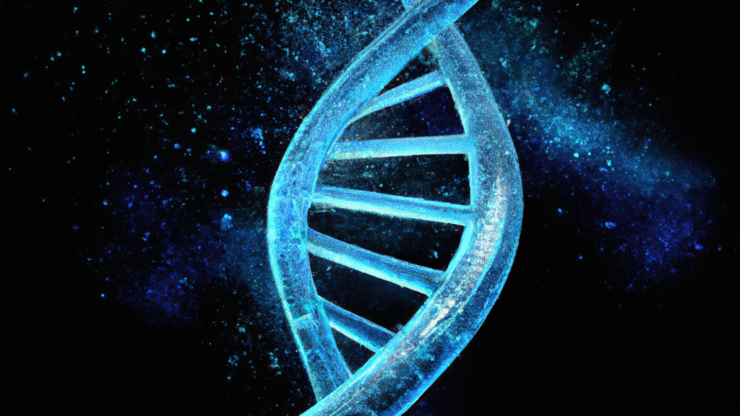Unlocking the Mystery: Alien DNA Holds the Key
The search for extraterrestrial life has always been a fascinating topic in science and popular culture.
While there is no concrete evidence of alien life, the study of alien DNA holds the key to unraveling this mystery.
In this article, we will explore the basics of DNA and what makes alien DNA unique. We will delve into the depictions of alien DNA in popular culture and its role in evolution.
We will also highlight recent breakthroughs in research and the challenges and controversy surrounding the study of alien DNA.
Jump to Section
Introduction
The search for extraterrestrial life has captivated the minds of scientists and the general public alike. The possibility of life beyond Earth raises countless questions about the nature of the universe and our place in it.
While we have yet to find concrete evidence of extraterrestrial life, the study of alien DNA holds the promise of unlocking this mystery. By examining the unique characteristics of alien DNA, we can gain insight into the nature of life in the universe.
The fascination with alien lifeforms
Humans have been fascinated with the idea of life beyond Earth for centuries.
From H.G. Wells’ “War of the Worlds” to Steven Spielberg’s “Close Encounters of the Third Kind,” science fiction has explored the possibilities of alien life.
This fascination has also inspired scientific research into the search for extraterrestrial life. Advances in technology have allowed scientists to explore the cosmos in greater detail, leading to new discoveries and possibilities.
The Science of Alien DNA
Before diving into the specifics of alien DNA, it is important to understand the basics of DNA.
The basics of DNA
DNA, or deoxyribonucleic acid, is a molecule that carries genetic information. It is made up of four nucleotide bases (adenine, guanine, cytosine, and thymine) that pair up in specific ways.
The sequence of these nucleotides determines an organism’s traits and characteristics.
What makes alien DNA unique?
While the basics of terrestrial DNA are well understood, the study of alien DNA presents unique challenges. Alien DNA may differ in its sequence, structure, and composition from terrestrial DNA.
It may also use different nucleotide bases or have a different number of chromosomes. Understanding these differences is crucial to unlocking the secrets of alien life.
How is alien DNA studied?
Studying alien DNA requires a multidisciplinary approach. Scientists use a range of techniques, from genetic sequencing to biophysical analysis, to examine the unique properties of alien DNA.
They also study extremophiles, organisms that can survive in harsh environments, to gain insight into the conditions that may support extraterrestrial life.
Alien DNA in Popular Culture
The depiction of alien DNA in movies and TV shows has helped to shape our understanding of extraterrestrial life.
Depictions of alien DNA in movies and TV shows
From the chest-bursting xenomorph in “Alien” to the blue-skinned Na’vi in “Avatar,” science fiction has imagined a range of alien lifeforms and their DNA.
These depictions often take creative liberties with the science, but they also inspire scientific curiosity and imagination.
The impact of pop culture on scientific research
Pop culture has played a significant role in shaping scientific research. The popularity of science fiction has inspired young people to pursue careers in science and technology.
It has also spurred scientific research into topics such as artificial intelligence, robotics, and space exploration.
Alien DNA and Evolution
The study of alien DNA can provide insight into the nature of evolution and the diversity of life in the universe.
The role of alien DNA in evolution
DNA is crucial to the process of evolution, as organisms with beneficial mutations are more likely to survive and reproduce.
By studying the DNA of extraterrestrial life, we can gain insight into the adaptive strategies of alien organisms and the conditions that promote their survival.
Comparing alien DNA to terrestrial DNA
Comparing the DNA of extraterrestrial life to terrestrial DNA can also shed light on the origins of life.
If alien DNA has significant differences from terrestrial DNA, it may suggest that life evolved independently on different planets.
The implications for the search for extraterrestrial life
The study of alien DNA has important implications for the search for extraterrestrial life. By understanding the properties of alien DNA, we can better design experiments and tools to detect signs of extraterrestrial life.
It may also inform our search for habitable planets and the conditions that support life.
Unlocking Alien DNA: Breakthroughs in Research
Recent breakthroughs in research have brought us closer to unlocking the secrets of alien DNA.
Recent discoveries in alien DNA
In 2019, scientists discovered the first known organism that uses arsenic instead of phosphorus in its DNA. This discovery challenges the traditional understanding of the requirements for life and expands the possibilities for extraterrestrial life.
Other recent discoveries include the detection of amino acids and organic compounds in meteorites.
The potential applications of alien DNA research
The study of alien DNA has numerous potential applications, from developing new technologies to improving our understanding of evolution and the origins of life.
It may also inform our search for habitable planets and the conditions that support life.
The challenges of studying alien DNA
Studying alien DNA presents numerous challenges, from accessing extraterrestrial samples to developing new techniques for analyzing and sequencing DNA.
It also raises ethical concerns about the potential risks of contaminating alien environments and the implications of finding extraterrestrial life.
The Controversy Surrounding Alien DNA Research
The study of alien DNA raises important ethical and scientific questions.
Ethical concerns about studying alien DNA
The study of alien DNA raises ethical concerns about the potential risks of contaminating alien environments and introducing terrestrial life to extraterrestrial environments.
It also raises questions about the implications of finding extraterrestrial life and the responsibility of scientists to consider the broader societal impacts of their research.
The potential risks and benefits of studying alien DNA
Studying alien DNA has the potential to revolutionize our understanding of the universe and our place in it. However, it also carries risks, such as the unintended consequences of introducing terrestrial life to extraterrestrial environments.
Balancing scientific curiosity with responsible research practices is crucial to ensuring the benefits of alien DNA research outweigh the risks.
Conclusion: Unlocking the Secrets of Extraterrestrial Life
The study of alien DNA holds the key to unlocking the mysteries of extraterrestrial life.
From the basics of DNA to recent breakthroughs in research, the study of alien DNA has important implications for our understanding of the universe and our place in it.
As we continue to search for signs of extraterrestrial life, the study of alien DNA will be essential to uncovering the secrets of the cosmos.
Comparison of Alien DNA and Terrestrial DNA
| Characteristics of Alien DNA | Characteristics of Terrestrial DNA |
|---|---|
| May use different nucleotide bases | Adenine, guanine, cytosine, and thymine |
| May have a different number of chromosomes | 23 pairs of chromosomes in humans |
| May differ in sequence, structure, and composition | Well understood |
| Plays a crucial role in the process of evolution |
FAQ
What is DNA?
DNA is a molecule that carries genetic information. It is made up of four nucleotide bases (adenine, guanine, cytosine, and thymine) that pair up in specific ways.
The sequence of these nucleotides determines an organism’s traits and characteristics.
What is alien DNA?
Alien DNA refers to the DNA of extraterrestrial lifeforms. It may differ in its sequence, structure, and composition from terrestrial DNA.
Why is the study of alien DNA important?
The study of alien DNA has important implications for our understanding of the universe and our place in it. It may inform our search for extraterrestrial life and shed light on the origins of life.
What are the challenges of studying alien DNA?
Studying alien DNA presents numerous challenges, from accessing extraterrestrial samples to
Greetings fellow space travelers, I am Draco Blaze, creator of Alienated Media who is passionate about exploring the unknown and writing about my experiences with extraterrestrial life.
My focus is on alien encounters and creating thought-provoking sci-fi short stories that transport readers to new worlds and realities.
Feel free to contact me at [email protected].





